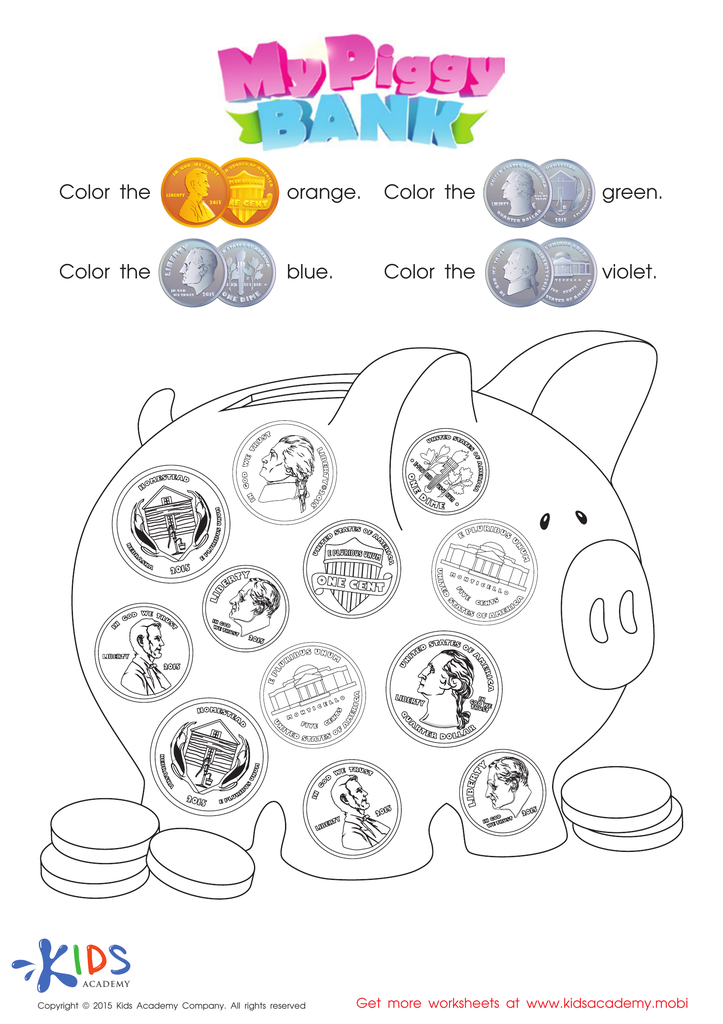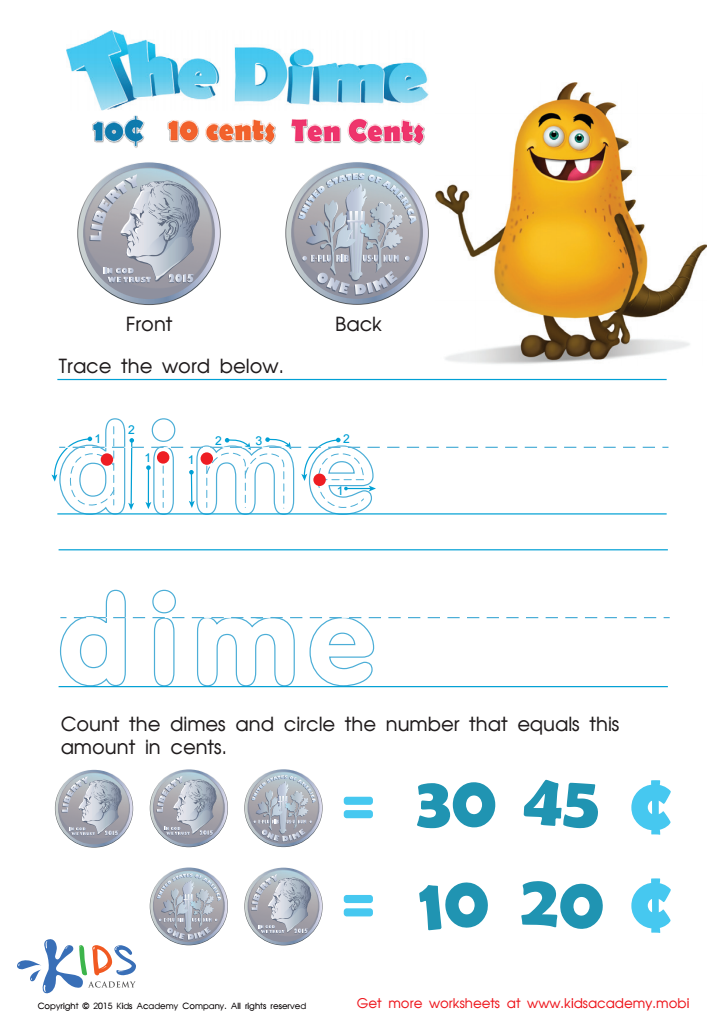Counting money Math Worksheets for Ages 5-9
3 filtered results
-
From - To
Discover our engaging and educational counting money math worksheets for ages 5-9 at Kids Academy! Perfectly designed to make learning money fun, our printable worksheets help young learners recognize and count coins and bills with ease. From simple coin identification to more advanced money calculations, these activities enhance math skills while fostering financial literacy. Kids will love the colorful illustrations and hands-on practice, making these worksheets an essential tool for homeschoolers, teachers, and parents. Prepare your child for real-world situations by downloading our free counting money math worksheets today and let the fun learning begin!


Recognizing Money Money Worksheet


Ten Cents or the Dime Money Worksheet
Counting money is a vital math skill for children aged 5-9, and parents or teachers should prioritize it for several reasons. First and foremost, counting money introduces kids to practical math applications that they'll use throughout their lives. Understanding money management helps children develop financial literacy early on, laying a strong foundation for responsible economic behavior in the future.
Additionally, learning to count money enhances basic arithmetic skills such as addition, subtraction, multiplication, and division. When children count coins and bills, they practice these operations in a tangible and meaningful way, which solidifies their comprehension. It also aids in developing critical thinking and problem-solving skills. For example, if a child needs to figure out how to make a certain amount using different denominations, they must think strategically and systematically.
Furthermore, counting money boosts a child’s confidence and independence. Being able to handle money correctly empowers them to make purchases by themselves, giving them a sense of responsibility and autonomy. Socially, it prepares them for real-world interactions, like paying for items at a store, which is a practical skill they’ll use frequently.
In summary, focusing on counting money for children aged 5-9 sets the stage for financial literacy, strengthens core arithmetic skills, enhances problem-solving abilities, and builds confidence—all essential competencies for their future.


 Assign to My Students
Assign to My Students




















